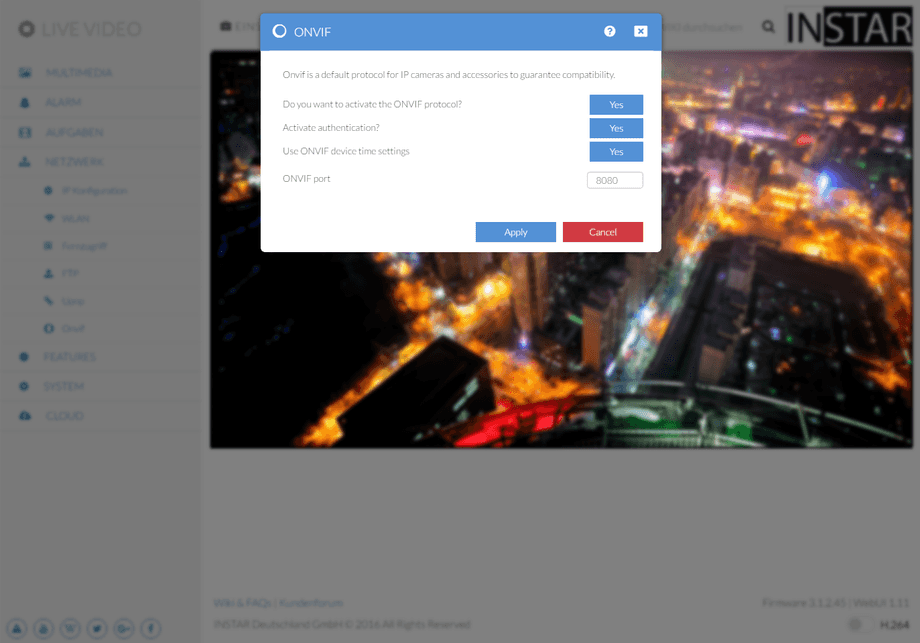1080p Web User Interface
Network Menu
ONVIF Camera Service
The surveillance industry has created an open standard protocol called ONVIF that allows cameras to communicate with each other and with network recording devices. You can activate or deactivate this service and change the port that it is using - as needed by your receiving ONVIF device.
ONVIF is a global standard for the interface of IP-based security products. The ONVIF specification will ensure interoperability between products regardless of manufacturer, allowing you to integrate your INSTAR camera as a generic ONVIF camera into existing security systems.
ONVIF Settings | Description |
|---|---|
| Activate ONVIF Protocol | Activate or deactivate the ONVIF Service of your camera. |
| ONVIF Authentication | If you third-party ONVIF device cannot connect with your camera, you can try to deactivate the authentication for the ONVIF Protokoll. Be aware that everyone might be able to login your cameras live video stream, if authentication is deactivated. It is not recommended to forward the ONVIF port to the internet in this case. |
| Use ONVIF Device Time Setting | The ONVIF protocol allows you to adjust your cameras date & time setting. For example, if you are using a ONVIF NVR video recorder or a Recording Software that connects to your camera via ONVIF, you can allow this device or software to set the time inside your camera. This way you can make sure, that all your cameras are in sync. |
| ONVIF Port | This is the port that external devices have to use to communicate with your camera over the ONVIF Protokoll. It is recommended to leave it at its default 8080. Make sure that you don´t use the same port as LAN, RTMP or RTSP Port! |
